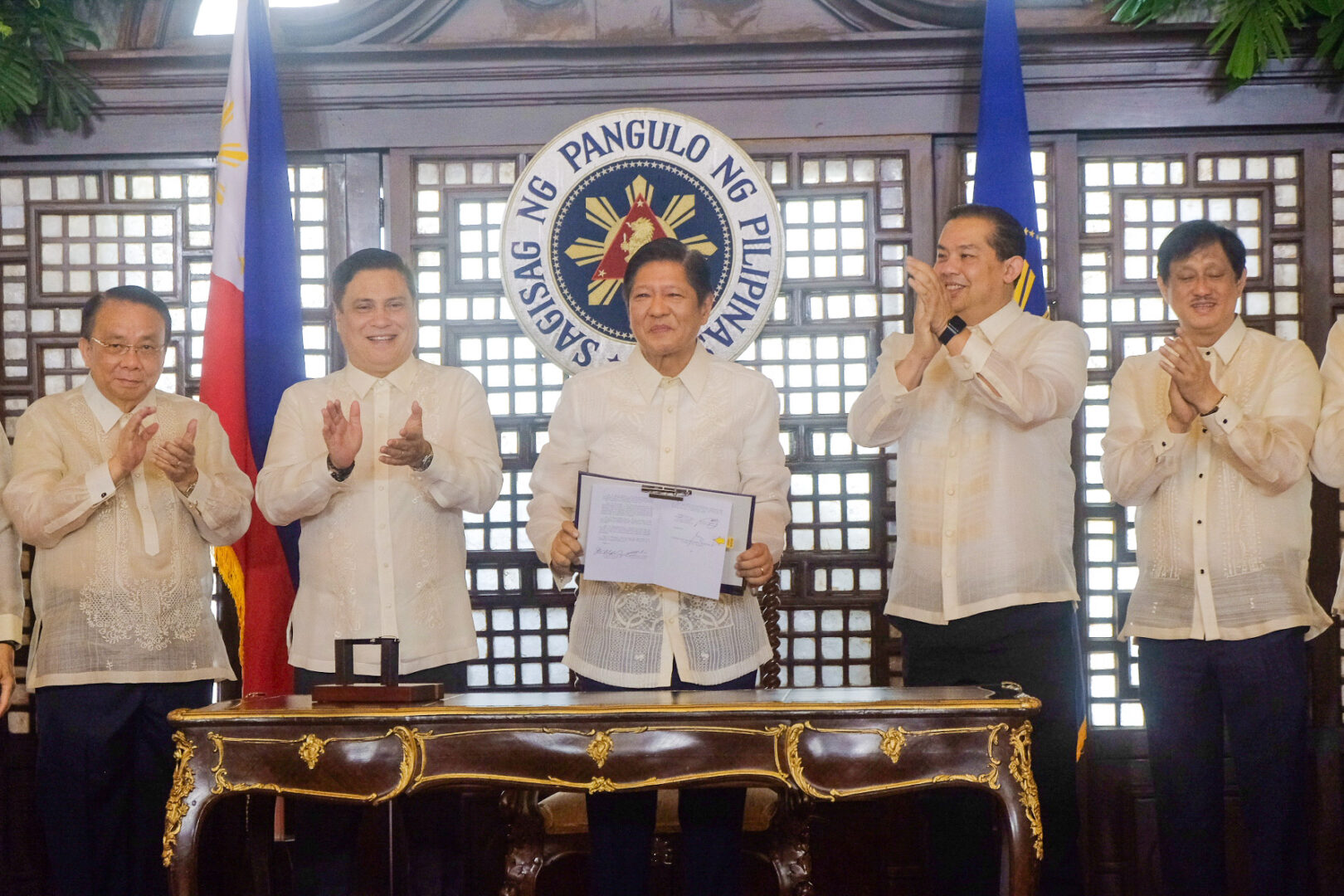President Ferdinand Marcos Jr. on Friday signed into law Republic Act 11953 relieving thousands of farmers of their long-standing debts associated with the Comprehensive Agrarian Reform Program.
During the signing ceremonies in Malacañang, Marcos explained that RA 11953, or the New Agrarian Emancipation Act or NAEA, condones all unpaid amortizations, including interest and surcharges, for awarded lands.
The signing came ahead of the President’s second State of the Nation Address on 24 July.
“Let us continue agrarian reform not only through land distribution and providing land to farmers who still do not have any but also to completely free them from debt that hinders their full ownership of the land given to them by the government,” Marcos said in his speech.
“Free land distribution must go hand in hand with broadening the provision of credit facilities and support services in the form of farm inputs, equipment, and facilities for our farmers, as well as the construction of more farm-to-market roads,” he said.
Marcos thanked Congress for swiftly passing the bill. He also acknowledged his sister, Senator Imee Marcos, for her efforts in getting the bill passed in the Senate.
“We had waited for several administrations, and yet we had not accomplished this. It is a great honor for me to stand before you and announce that we will now make this into law, granting and liberating our farmers and agrarian reform beneficiaries from their burdensome debts,” the President said.
Loan obligations
The law applies to farmers and farm workers who were granted land under Presidential Decree No. 27 but still had outstanding loan obligations to both the Land Bank of the Philippines and private landowners.
The measure forgives the total principal loan amount of P14.5 billion, which includes accrued interest, penalties and surcharges, for 263,622 beneficiaries whose names were submitted to Congress by the Land Bank of the Philippines.
Under the agrarian reform law, beneficiaries were obligated to make annual installment payments for the land they received, at 6 percent interest, over a maximum of 30 years.
The total unpaid debt that rose to P57.56 billion will be absolved, ultimately benefiting 610,054 agrarian reform beneficiaries who cultivate approximately 1.173 million hectares of land.
‘Not unfair’
Agrarian Reform Secretary Conrado Estrella III said the New Agrarian Emancipation Law is “not unfair” to the farmers who had repaid their agrarian debts before the enactment of the law, considering the changes that had occurred over time.
Estrella, who was present at the signing, said, “In the past, it was easier for our farmers to pay because they were earning. Now, there have been numerous developments here in our country and around the world.”
“The prices of farm machinery, equipment, and other inputs have increased — this is happening worldwide — which has made the lives of our farmers more difficult. Additionally, we experienced a pandemic,” he said.
Estrella said RA No.11953 was a priority legislation that the President asked Congress to pass in his first State of the Nation Address on 25 July 2022.
Broader services
“By freeing farmers from the agrarian debt, and ensuring broader support services and credit facilities, the Marcos administration has given more resources to our farmers to increase the productivity of their farms and uplift the quality of their lives,” Estrella said.
Finance Secretary Benjamin Diokno, who was also at the signing ceremony, assured the public the loan condonation program would not affect government revenues.
Diokno said the program is separate from the government’s fiscal plans for the next five years. The program is a form of social justice and will benefit many agrarian reform beneficiaries, he added.
“When running a government, we consider not only efficiency but also social justice, so this falls under social justice,” Diokno said.
He said the government will only collect paid loans from the beneficiaries, adding that the program will be implemented over time.
